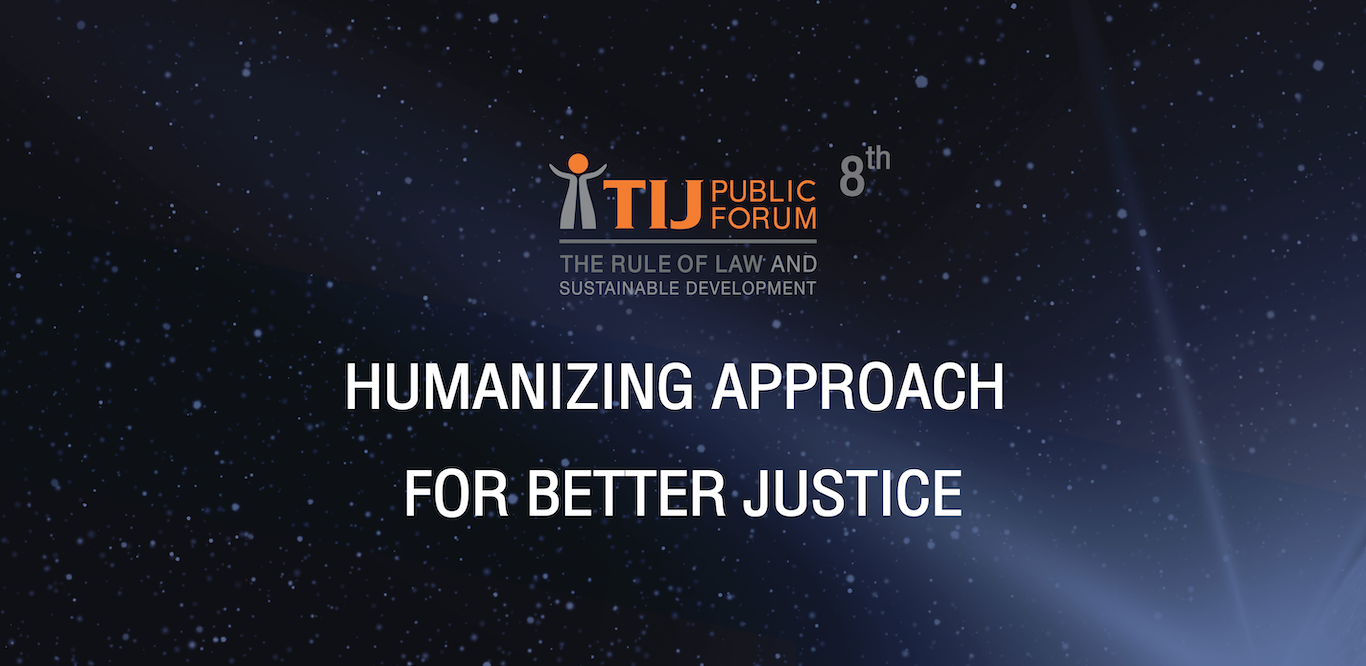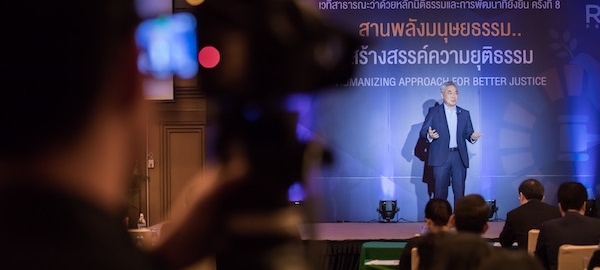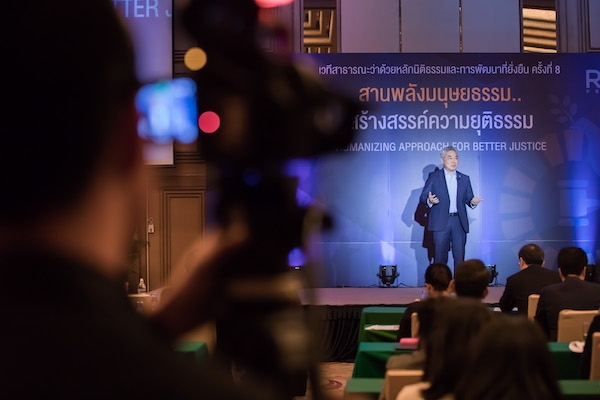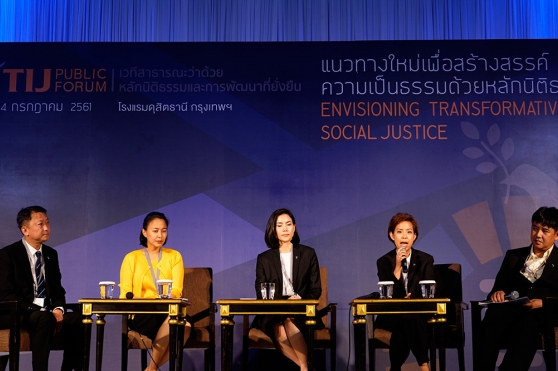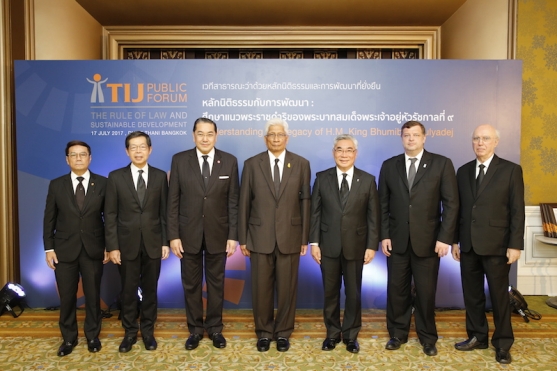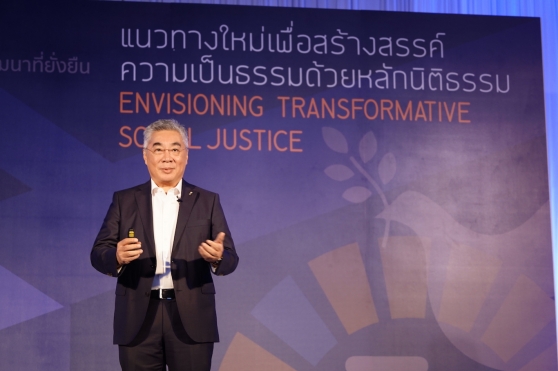The Latest Public Forum Hosted by the TIJ Presenting Justice through the Lens of the Public with the Topic: A Humanizing Approach for Better Justice
“Justice and equality” are what people naturally seek. However, a justice system that is truly just requires cooperation from all sectors, covering every aspect of life, including the economy, society, and politics.
The Thailand Institute of Justice (TIJ) therefore held the 8th TIJ Public Forum on Law and Sustainable Development under the topic “Humanizing Approach for Better Justice.”
The forum, which was a summary of the 3rd TIJ Executive Programme on the Rule of Law and Development (RoLD Programme), focused on presenting experiences of justice through the lens of the public, reflecting a humanitarian philosophy that will contribute to a truly just justice system and make justice a matter for everyone. Aiming to generate ideas that combine efficiency principles, a sustainable business management perspective, and the application of digital technology to encourage participation from all levels and to propose long-term solutions, the forum shed light for a better Thai society.
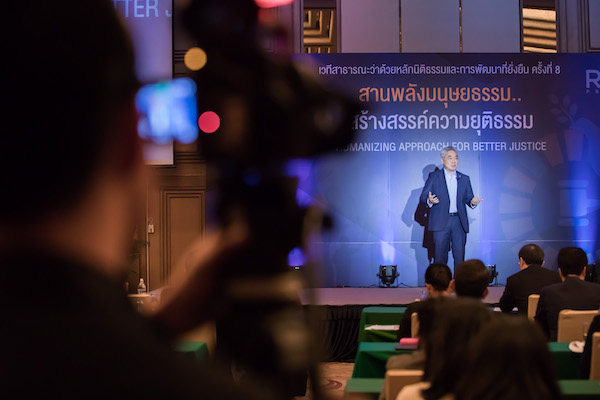
“Justice is Everyone’s Matter,” said Prof. Dr. Kittipong Kittayarak, TIJ Executive Director. He explained that
“justice is not just about the system or the process alone. Actually, justice is around us. So, when adjusting the viewpoint of justice by looking through the lens of humanity, we will see clearer ways of fairness. A better justice system can be created if we believe in humans. If the justice system is designed with respect for human rights or is designed with regard to the principle of “humanity” or “humaneness,” it may make us understand social problems more clearly in various aspects. Such principles may be an alternative way to solve problems in a sustainable justice system.”
Highlights of the 8th TIJ Public Forum on Law and Sustainable Development included a discussion on “Justice with Humanitarian Power” by Mrs. Ticha Na Nakorn, Director of the Baan Kanjanapisek Juvenile Vocational Training Centre, an exchange on injustice experiences entitled “The Story of Justice through the Lens of the Public” by leaders from various sectors; namely, Mr. Kitti Singhapat, Mrs. Sirinya Bishop, Prof. Dr. Anan Srikiatkhachorn, Mrs. Nusara Banyatpiyaphod, Mr. Pipatpong Israsena Na Ayudhya, and Prof. Dr. Surasak Likasitwatanakul, as well as a speech on “Creative Diversity for Social Innovation” by Mr. Thepchai Yong. Additionally, there was a seminar held by leaders from the 3rdRoLD Programme that covered three main issues: “Safe Shelter Families,” “Digital Employability,” and “Youth and Culture to Respect Rules and Education Governance.” The presented issues were analyzed through the humanitarian perspective, which is linked to the rule of law to solve the problem of injustice, to reduce inequality, as well as to drive youth participation to cultivate a culture of lawfulness.
Addressing various issues at this public forum, the TIJ aimed to stimulate everyone to see the importance of the rule of law, humanity, and efforts to solve social problems. Prof. Dr. Kittipong emphasized the following: “To solve the problems, there is no need to wait for the law to be amended or for reformation. Once we are human-centric and start solving the issues from the root of humanity, we can see that society is more than one dimensional. Therefore, the ‘cooperation and power of all people’ are important to cope with problems sustainably.”
All of this reflects the mission of the Thailand Institute of Justice as an institute of the UN Crime Prevention and Criminal Justice Programme Network (PNI), which recognizes the importance of building a network of personnel that is not limited to lawyers or law enforcement. Moreover, the TIJ is a promoter of changes that supports and encourages all sectors to participate in the adoption of the rule of law to achieve concrete results in society.



